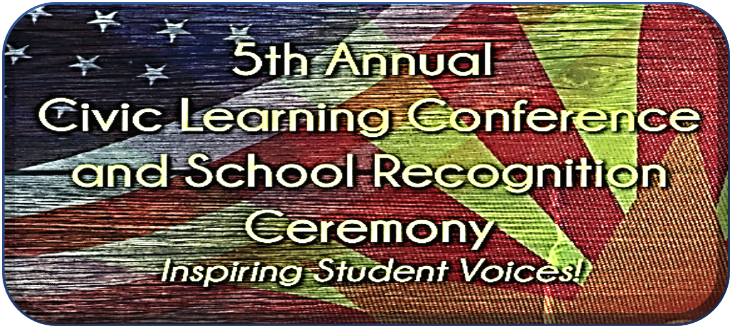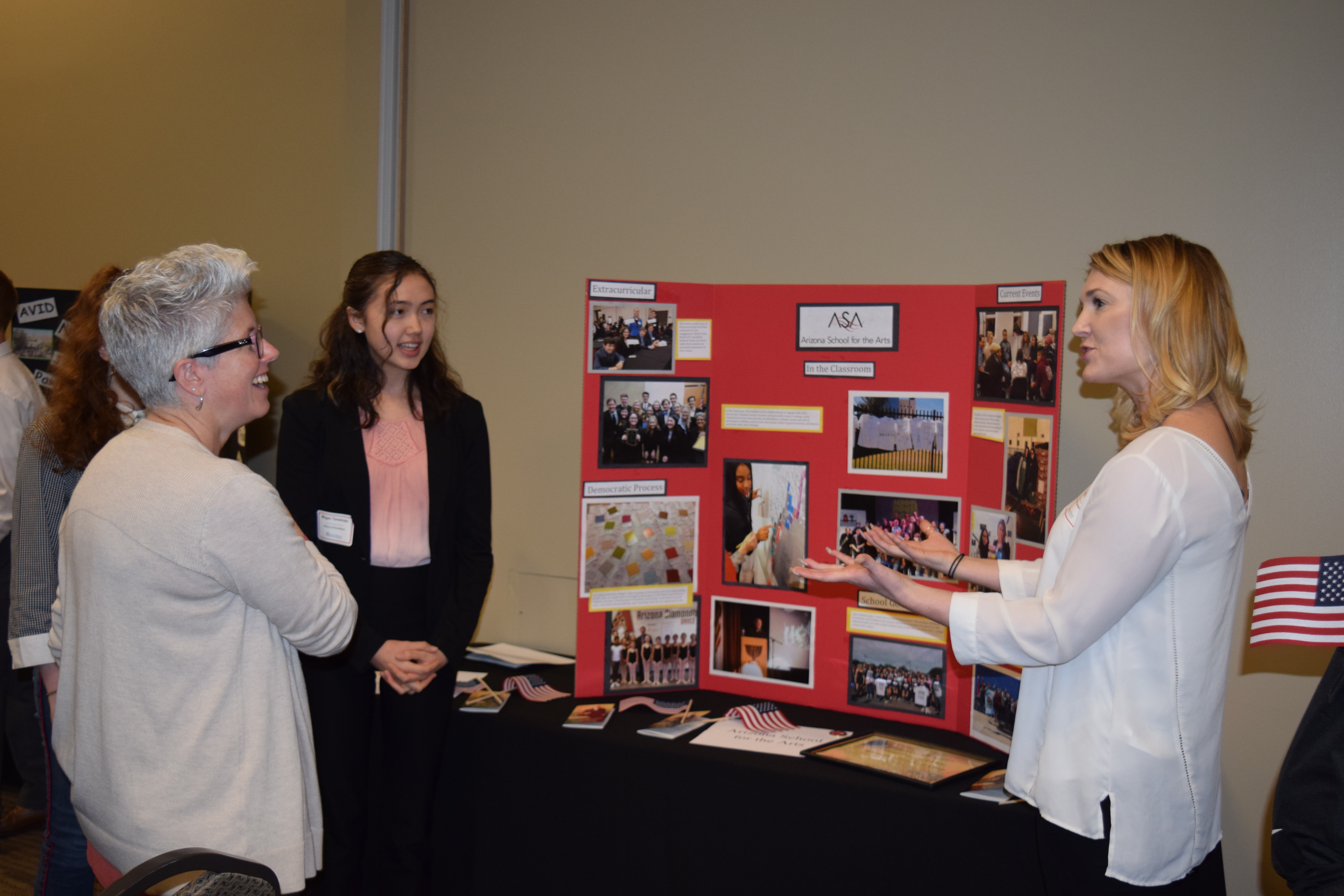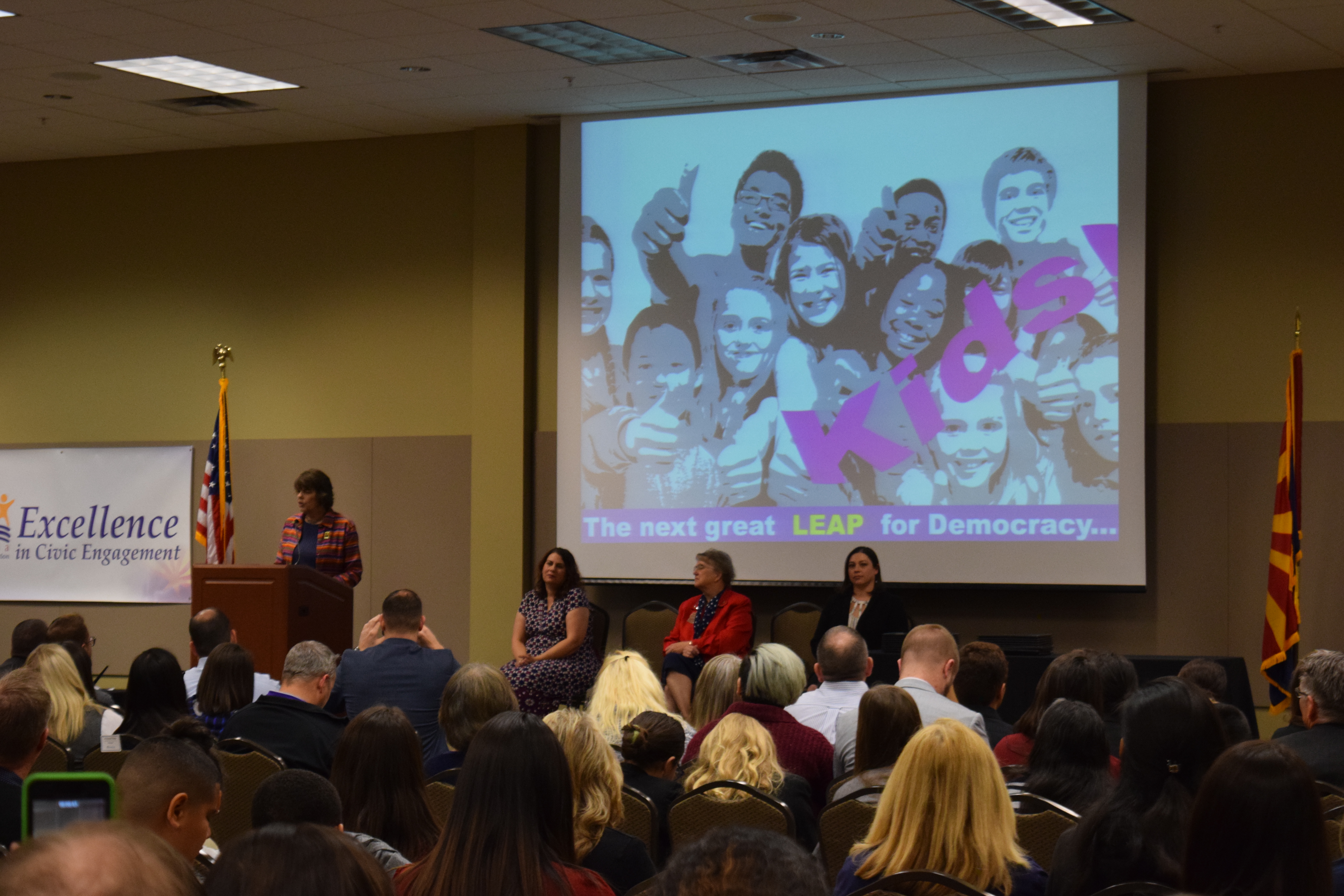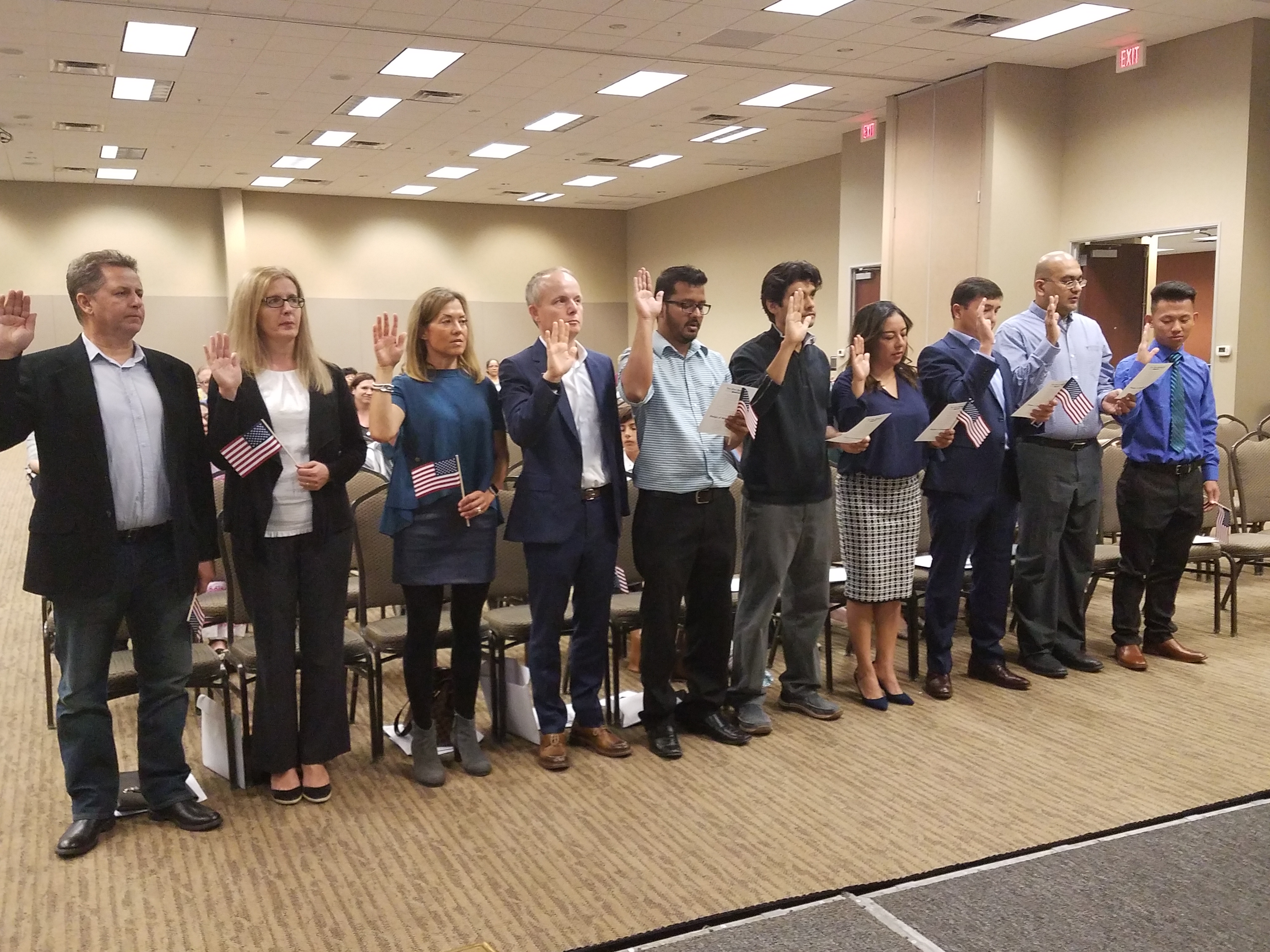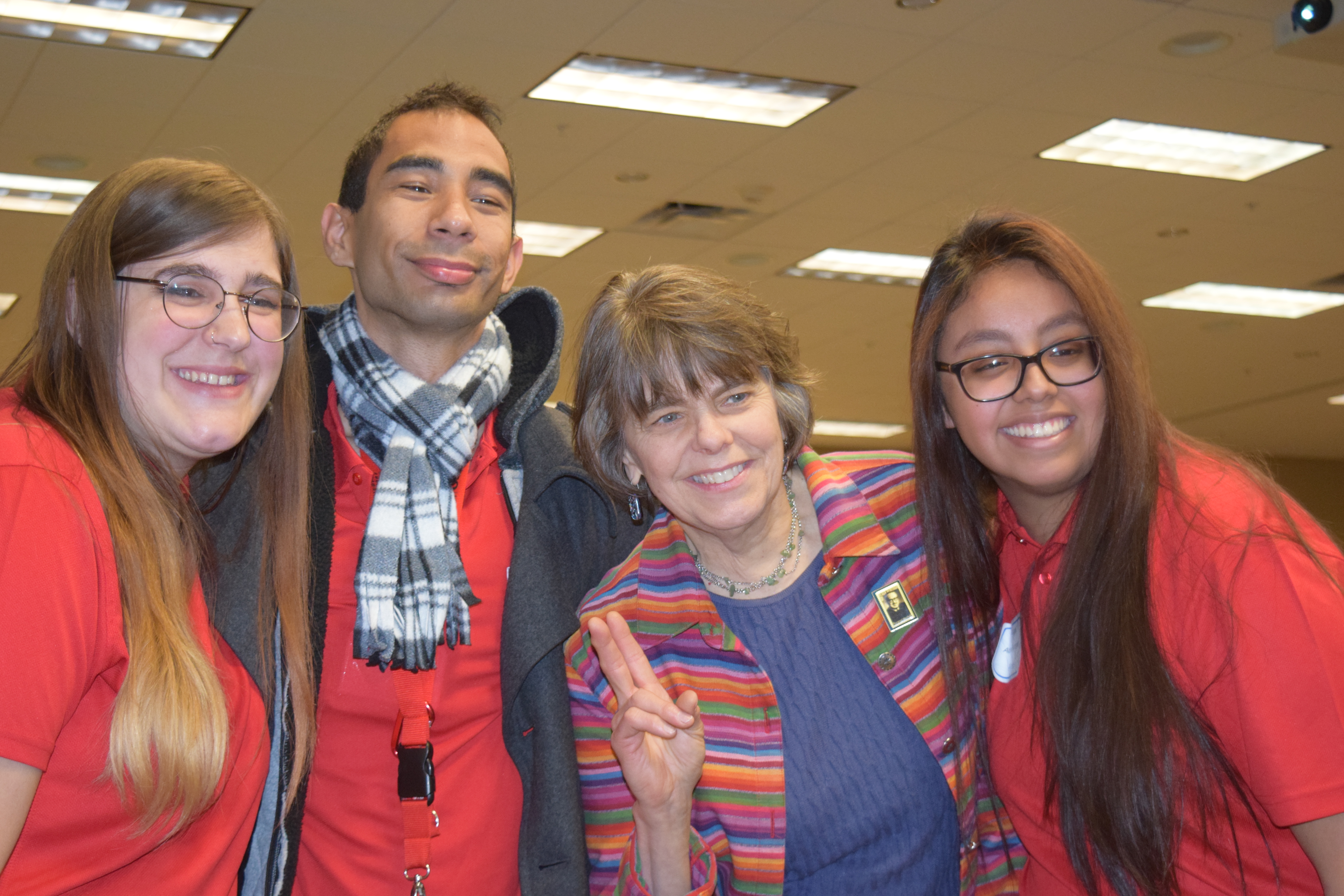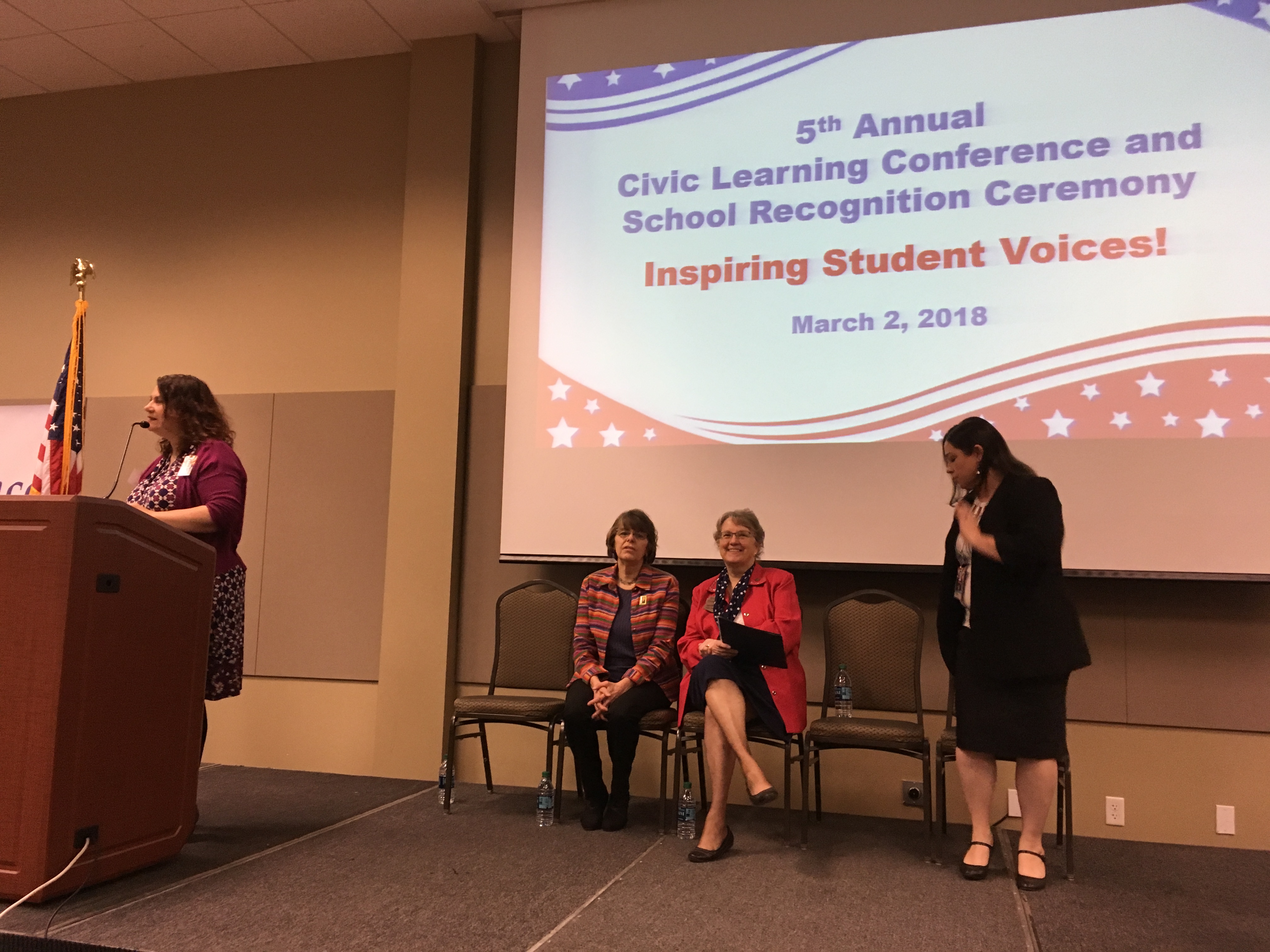Conference Highlights
Take a look at the 2018 Conference program!
Hosted by
The Arizona Department of Education and
Maricopa Community Colleges
February 3rd, 2017
Paradise Valley Community College
View Photo Gallery from the 2017 Civic Learning Conference
Conference Highlights:
Speaker, Marshall Trimble, Arizona’s Official State Historian
Naturalization ceremony
Learn about Arizona’s new Civics Test
Network with fellow conference participants
Engage in interactive sessions presented by current Arizona K-12, Community College educators, and Adult Education Program staff.
Examine the six proven practices in civic learning and take away strategies on how they can be implemented with your own students Gather valuable information and resources from leading civic organizations
Receive Professional Development hours for re-certification
Read about the keynote Speaker Marshall Trimble is considered the “dean of Arizona historians” and has taught Arizona history at Scottsdale Community College for 40 years. His first book was published in 1977 by Doubleday & Company, New York. Since then he’s written more than twenty books on Arizona and the West.
Trimble has received many honors both as a historian, writer and performer. In 1997, the governor of Arizona appointed him Official State Historian. In 2000, he was selected as one of Arizona’s representatives in the Library of Congress’ “Local Legacies.” Two years later he received the first “Copper Star Award” from the State Society of Arizona in Washington D.C. In 2003 he received the Scottsdale Jaycees “Distinguished Service Award,” That same year he was named a Charter Member of the Arizona Culturekeepers. In 2004, the Daughters of the American Revolution awarded him their “Medal of Honor” for leadership and patriotism. He was also inducted into the Scottsdale Hall of Fame and the Arizona Veteran’s Hall of Fame. In 2011, the Arizona Historical Society presented him their distinguished Al Merito Award in recognition of his lifetime service in promoting Arizona history.
The Arizona Centennial Commission honored him in December 2011 as “One of Arizona’s Most Inspiring Leaders.” In preparation for the state’s 100th Anniversary, he was appointed by the governor to the Arizona Centennial Commission. He was also a member of the Governor’s Commission in 1987 celebrating the state’s 75th Anniversary. Trimble has served 25 years as a charter member of the Arizona Peace Officer Memorial Board honoring officers who died in the line of duty. He is an honorary Major in the Arizona Air National Guard and a sworn deputy sheriff in Cochise County.
Naturalization Ceremony
The process by which U.S. citizenship is granted to a foreign citizen or national after he or she fulfills the requirements established by Congress in the Immigration and Nationality Act (INA).
Click to view the program
Inspiring Students Voices!
Hosted by The Arizona Department of Education
Conference Highlights:
Speaker, Mary Beth Tinker
Naturalization Ceremony
Network with fellow conference participants
Engage in interactive sessions
Examine the six proven practices in civic learning and take away strategies on how they can be implemented with your own students
Gather valuable information and resources from leading civic organizations
Receive Professional Development hours for re-certification
Keynote Speaker
Mary Beth Tinker
Mary Beth Tinker was born in 1952 and grew up in Iowa, where her father was a Methodist minister. Her parents believed that religious ideals should be put into action, and the whole family became involved in the civil rights movement in the 1960’s. One of Mary Beth’s early memories is of her parents going to Ruleville, Mississippi in 1964 as part of Freedom Summer, an effort organized by Robert Moses and the Student Nonviolent Coordinating Committee (SNCC) to register African Americans to vote. By 1965, about 170,000 U.S. soldiers were stationed in Vietnam. Graphic footage of the war was carried into households every day in this first “televised” war. As a 13-year-old student in eighth grade, Mary Beth was strongly affected by news of the war. She and her brothers and sisters, along with other students in Des Moines, decided to wear black armbands to school to mourn the dead on both sides of the Vietnam war. The armbands were also in support of a Christmas truce called by Senator Bobby Kennedy that year. The Des Moines school board tried to block the students from wearing the armbands, and most of the students who wore them were suspended, including John Tinker, Chris Eckhardt, Ross Peterson, Bruce Clark, and Chris Singer. The American Civil Liberties Union took the case to the Supreme Court for named plaintiffs John and Mary Beth Tinker and Chris Eckhardt. In 1969, the Court ruled in a landmark decision that students in public schools do have First Amendment rights. Justice Abe Fortas wrote in the majority opinion that students and teachers do not “shed their constitutional rights...at the schoolhouse gate.” Mary Beth continues to educate young people about their rights, speaking frequently to student groups across the country. An advocate for the rights of youth, particularly in the areas of health and education, she is a retired pediatric nurse who has been active in her union, SEIU, and holds master's degrees in public health and nursing. In 2000, the Marshall-Brennan Project at Washington College of Law at American University named its annual youth advocacy award after Mary Beth. In 2006, as a tribute to Tinker’s devotion to the rights of young people, the ACLU National Board of Directors’ Youth Affairs Committee renamed its annual youth affairs award the “Mary Beth Tinker Youth Involvement Award."






